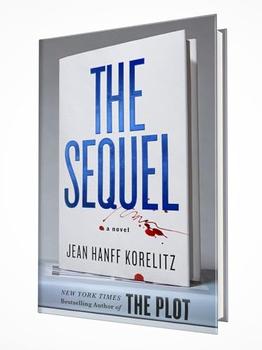Summary | Excerpt | Reading Guide | Reviews | Beyond the Book | Readalikes | Genres & Themes | Author Bio

A Novel
by Tara Karr RobertsChapter 1
It took me some time to appreciate the smell of dead fish. When I arrived on Nantucket I was nineteen, claiming myself to be the niece of a businessman who was due to visit the island in search of a ship to sponsor. I took a room at the Try Pots inn, and there I met its proprietor, Hosea Hussey. Over a bowl of thin and gritty clam chowder, I told him I could make better. Perhaps this was overconfident, as I had never so much as touched a sea creature, but he said he would be pleased to see me try. When I told him the uncle and the ship were lies, Hosea laughed. We were married six days later on the deck of the whaler Deborah by a half-drunk minister who had stumbled over from the mainland some days earlier. Hosea wore an ill-fitting suit left to him, alongside the inn, by his late father; I, my yellow gown. As its skirts brushed the polished planks, they released the stench of whale oil, and I wondered if I should ever again smell the sea air without the smell of its inhabitants, deceased.
I spent the early days of our marriage learning to gut cod, to slice off their heads with a steady hand, to pry open the tiniest clams with the twist of a knife tip. It turned out I was good with chowder—and the previous cook had been bad with it, too generous with the water and moldering biscuits. I fried salt pork, softened the onions in its drippings, doubled the clams, skinned the cod, finished each batch with cream and butter. Soon we had to keep the pots on to cook day and night.
The cloud of chowder air released from the Try Pots' kitchen filled the halls and rooms, leaked from the doors, hovered above the roof. Our room smelled of clam and cod—hearth and chair and headboard and sheets—and Hosea wore a sheen of scent in the pockets behind his ears, in the coarse, fair curls on his chest, in the soft skin on the insides of his thighs. Before long the smell worked its way into my own palms and knuckles. Some nights I would lift my hands to my face as I slept and wake at the shock, and once I wept over my pots as I wondered if I would ever again smell the sweetness of woodsmoke without the body of a fish above it. But time and love wear down sensitivities, and chowder is delicious.
We had two good years. Early one September morning when the inn was silent, Hosea woke me with a promise to return with something new. I kissed him goodbye, thinking only of our guests, who would soon begin streaming in for breakfast. As I milked the cow and put on the first pots of the day, I rearranged recipes in my head. Lobster might go well with basil, scallops a splash of white wine. What if it were mackerel, or some unknown fish? I planned to test Hosea's gift in my midday chowders, yet he had not returned as I filled the bowls of the morning stragglers. Concern crept in, and I assured myself I had no need to worry. I could ease my own fear.
I was born with the strange power to peer into the minds of those near me and see their recent moments, memories fresh and soft as paint on a canvas not yet dried. I had rarely used this skill on Hosea, rarely needed to, so open was he to me. I searched for him that morning, expecting to arrive at an image of him lost in thought as he fished, letting his boat drift through the mist, a bit too far from shore. What I found was the echo of him clutching his chest and stumbling, his hand twisting in a rope as he fell, the sea filling his boat and lungs.
Back in my kitchen, I stopped looking toward the door.
I knew what the neighbors would whisper when they realized my husband was gone. I knew they would scoff if I insisted he had fallen ill on his boat and drowned. More likely, they would say, it was his marriage to an outsider, the ceaseless chowder, the inn without the thumping feet of children that drove him away. Perhaps he had snuck to the mainland, boarded a ship to Boston, hopped a whaler to Tahiti. They would not help me find him, though I would know the location of his bones.
Excerpted from Wild and Distant Seas by Tara Karr Roberts. Copyright © 2024 by Tara Karr Roberts. Excerpted by permission of W.W. Norton & Company. All rights reserved. No part of this excerpt may be reproduced or reprinted without permission in writing from the publisher.




There is no worse robber than a bad book.
Click Here to find out who said this, as well as discovering other famous literary quotes!
Your guide toexceptional books
BookBrowse seeks out and recommends the best in contemporary fiction and nonfiction—books that not only engage and entertain but also deepen our understanding of ourselves and the world around us.